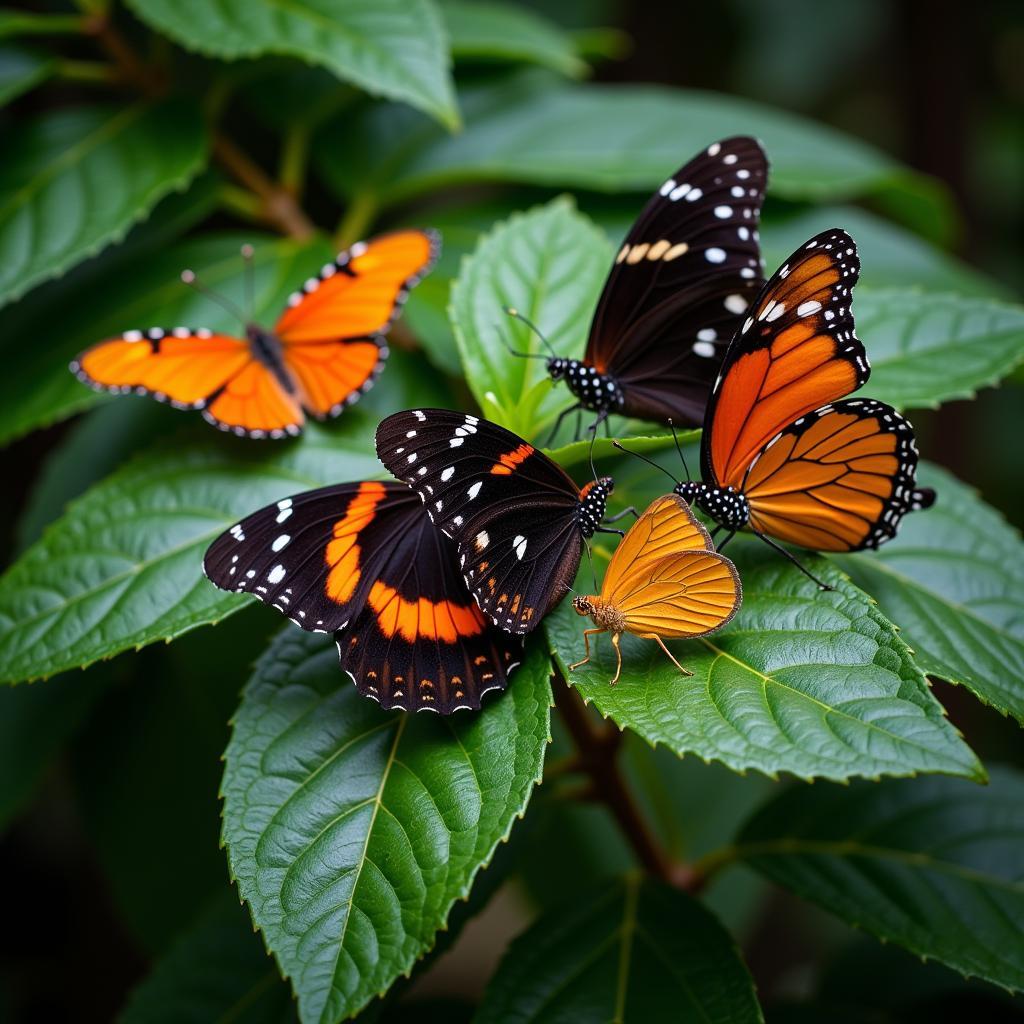The Truth About African Ants That Eat Humans: Myth or Reality?
There are countless stories and myths surrounding the vast continent of Africa. While some are rooted in reality, others are simply folklore or exaggerations. One such story that often pops up in conversations about Africa involves ants—specifically, ants that eat humans. Are there really African Ants That Eat Humans? The answer is far more nuanced than a simple yes or no.
While there are ant species in Africa that can deliver painful stings and bites, there are no known ant species that actively hunt and consume humans. The idea of giant, human-eating ants is more akin to a fictional monster than a real threat. However, certain ant species do pose risks to humans.
Understanding the Reality of African Ants
To grasp the truth about ants in Africa, we need to separate fact from fiction. It’s important to recognize that most ant species are beneficial insects that play crucial roles in ecosystems, from decomposing organic matter to controlling pest populations. While many ants have a fearsome reputation, the majority are harmless to humans.
The African Driver Ant: A Powerful Force
One ant species often associated with the myth of human-eating ants is the African driver ant (Dorylus wilverthi). These ants are known for their massive, nomadic colonies that can number in the millions. They are voracious predators, capable of consuming large quantities of insects, small animals, and even larger prey like snakes and lizards.
However, the African driver ant is not a human-eating threat. They might cause minor discomfort if they happen to crawl on you, but their primary focus is on finding food for their colony.
The African Weaver Ant: A Defensive Powerhouse
Another species that often sparks fear is the African weaver ant (Oecophylla longinoda). Known for their complex nest-building skills using leaves and silk, these ants are incredibly protective of their colonies. They are notorious for their aggressive defense mechanisms, which involve biting and injecting formic acid into their attackers.
While the African weaver ant can deliver painful stings, they pose no threat to humans. Their bites are primarily intended to deter predators, and they are more likely to focus on protecting their nests than attacking humans.
Understanding the Myth of Human-Eating Ants
So, where did the myth of human-eating African ants originate? It likely stems from a combination of factors, including:
- Folklore and Legend: Many cultures around the world have stories about giant, monstrous insects that threaten humans. These stories often serve as cautionary tales, teaching lessons about respect for nature and the dangers of the unknown.
- Exaggeration and Misinterpretation: The fearsome reputation of certain ant species, like the driver ant, could have been exaggerated over time, turning harmless insects into monstrous predators.
- Misidentification: The fearsome reputation of certain ant species, like the driver ant, could have been exaggerated over time, turning harmless insects into monstrous predators.
Dr. David Thompson, an entomologist and expert on African ant species, states, “The idea of human-eating ants is simply not true. While certain ant species can inflict painful bites or stings, they are not predators of humans. These myths likely stem from cultural folklore or a misunderstanding of the ant’s role in the ecosystem.”
The True Threat: Ant Stings and Bites
While African ants don’t eat humans, their stings and bites can be painful and, in some cases, pose a risk to people with allergies. The African driver ant, for instance, can inflict a painful sting with a powerful venom that can cause swelling and inflammation.
The African weaver ant, while not targeting humans, will defend their nests fiercely, delivering a painful bite that injects formic acid. This can lead to local irritation, swelling, and in some cases, allergic reactions.
Living Safely with African Ants
The key to avoiding unpleasant encounters with African ants lies in understanding their behavior and taking precautions. Here are some tips:
- Be mindful of your surroundings: Avoid disturbing ant nests or colonies, especially during foraging season.
- Wear protective clothing: When hiking or exploring in areas where ants are common, wear long pants, closed-toe shoes, and long sleeves.
- Keep food and drinks covered: Ants are attracted to food sources, so make sure to keep your food and drinks covered, especially outdoors.
Frequently Asked Questions
Q: What should I do if I get bitten or stung by an African ant?
A: If you are bitten or stung by an African ant, immediately wash the affected area with soap and water. Apply a cold compress to reduce swelling and pain. If you experience allergic reactions, such as difficulty breathing or swelling of the face and throat, seek medical attention immediately.
Q: Are there any types of African ants that are beneficial to humans?
A: Yes, many species of African ants are beneficial to humans. For example, weaver ants are used in some parts of Africa to control pests in crops.
Q: What is the best way to prevent ants from entering my home?
A: To keep ants from entering your home, seal any cracks or gaps in your foundation, walls, and doors. Keep food and garbage properly stored and dispose of any food spills immediately.
Q: Are there any African ant species that are endangered?
A: Yes, some African ant species are endangered due to habitat loss and other threats.
Conclusion
The myth of human-eating African ants is a testament to the power of folklore and exaggeration. While some ant species can pose a threat to humans through their stings and bites, none are known to hunt and consume humans. It’s essential to respect the natural world and avoid disturbing ant colonies or nests. By understanding the truth about African ants, we can appreciate their important role in the ecosystem and coexist safely with these fascinating insects.

